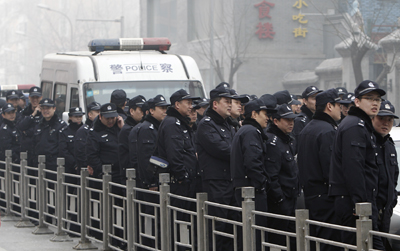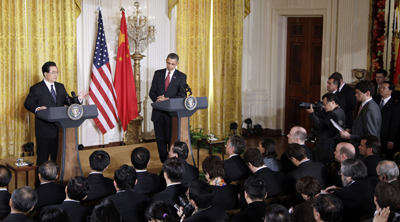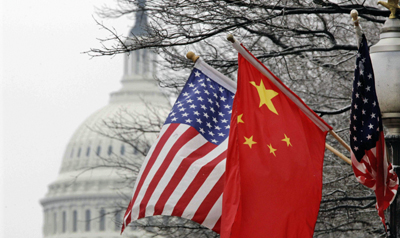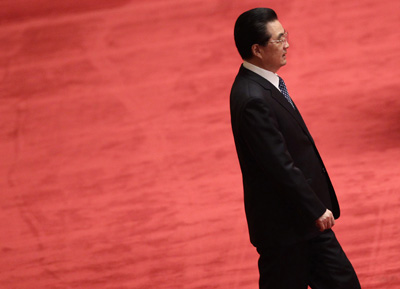
Abusive Twitter messages target foreign media in China
California-based China Digital Times (CDT) reports new Chinese-language Twitter commentators have appeared in the last week. Twitter is generally blocked in China, but heavily used by activists who access it by means of proxy networks overseas. The recent arrivals are vocal supporters of the government’s efforts to tamp down nascent “Jasmine Revolution” rallies anonymously organized…
Lawyer’s footage of house arrest published in China
Men in plainclothes recently harassed at least six foreign journalists in Shandong province. Vivid news footage shoes a group pelting CNN reporter Stan Grant and his photographer with rocks when they tried to visit the home of an activist under house arrest. Brice Pedroletti from France’s Le Monde, Stephane Lagarde with Radio France Internationale, and…
Is Taiwan’s media independence under threat?
As business relations develop between China and Taiwan, concerns are growing that Taiwan’s media freedom may be compromised. The culprits include some journalists themselves, promoting China to preserve their own business interests, and Taiwan’s Kuomintang (KMT) government, apparently attempting to exert control over the media through legislation.
China limits reporting on Egypt unrest in favor of ‘harmony’
Chinese information authorities are filtering results of Chinese-language Internet searches for “Egypt” and “Cairo,” according to Global Voices Online and The Wall Street Journal. The unrest raging there could prompt comparison with the student-led protests in Tiananmen Square in 1989 or incite anti-government demonstrations.
In China, Kristof’s blogs are shut down
Nicholas Kristof’s Sunday column in The New York Times documents the latest in a series of tests the journalist has performed in Chinese cyberspace. The conflicting results he achieved while setting up a Chinese-language blog and micro-blog demonstrate how difficult it is to judge what censors will permit in an online space.
In Chinese media, ‘a lot to be done’ is left unsaid
It is fair to report, as Agence France-Presse and others did today, that Chinese media largely avoided President Hu Jintao’s comments on human rights during a Washington press conference on Wednesday. But the nature of the omission is significant. Chinese reports acknowledged that a discussion of human rights took place between Hu and U.S. President…

Washington reporters press China’s Hu on human rights
Thanks to Ben Feller and Hans Nichols for raising questions about China’s human rights and press freedom record. A lot of Chinese journalists are grateful, too. When we urged U.S. President Barack Obama last week to raise press freedom concerns in his meetings with Chinese President Hu Jintao, we received no response. But when Feller of…

Obama should raise Chinese press attacks with Hu
In an open letter on January 11, CPJ asked U.S. President Barack Obama to raise the issue of jailed journalists with Hu Jintao while the Chinese leader is in Washington this week. They have plenty to talk about, but journalist freedom and security should be near the top of the agenda.

Chinese reporter’s death came days before Hu’s U.S. tour
CPJ has written to President Obama asking him to raise press freedom issues when Hu Jintao comes to the U.S. next week. China’s practice of restricting and imprisoning reporters domestically has serious implications for the U.S.-China relationship, and a concerning case last month suggests it may be getting worse.
Protecting yourself from denial-of-service attacks
It’s my second link to a report by Hal Roberts (and others at the Berkman Center) in as many days, but I worry that this this detailed document on denial-of-service (DOS) and hacking attacks on independent media and human rights groups might get missed in the holiday season. The news headlines in the last few…